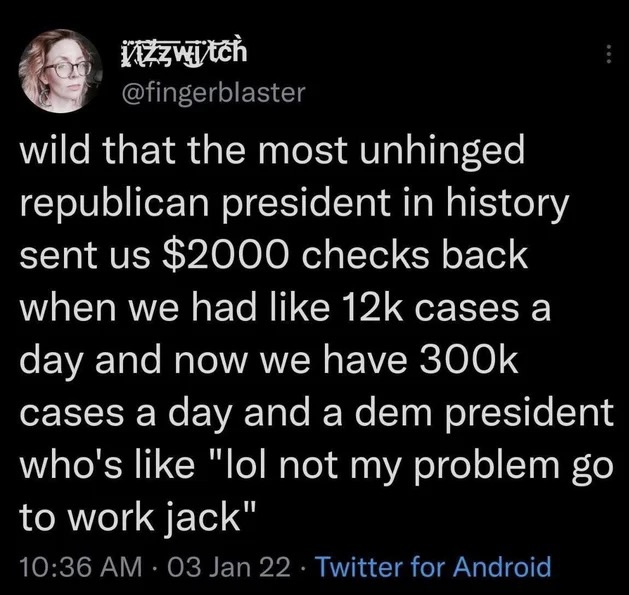A former president in the crosshairs: Jan. 6 committee puts Trump on notice as U.S. marks riot anniversary
Kevin Johnson and Bart Jansen, USA TODAY
If Donald Trump was looking for direction in the special House committee’s investigation into the deadly Capitol attacks, the former president now has an unsettling roadmap.
In a series of public appearances a year after the deadly insurrection, panel leaders have put Trump on notice that they have gathered evidence calling into question whether he defaulted on his oath of office to protect and defend the Constitution of the United States.
While his supporters were laying siege to the Capitol, Rep. Liz Cheney, R-Wyo., the committee’s co-chair, said Trump was passively watching the violence unfold on television from his White House dining room, indifferent to pleas from his own family that he rise to stop it.
And the alleged inaction, Chairman Bennie Thompson, D-Miss., suggested, could have perilous—even criminal—consequences.
"If, in the course of our review, we find something that we think warrants review or recommendation to the Department of Justice... we will do it," Thompson told ABC’s This Week. "We are not looking for it, but if we find it, we will absolutely make the (criminal) referral."
The ominous assessment comes just six months after the panel started its work. While a handful of witnesses have sought to resist the committee demands for information and testimony—former White House political strategist Steve Bannon and former chief of staff Mark Meadows among them—more than 300 others have submitted to interviews while thousands of records have been turned over to committee investigators.
For his part, Trump has repeatedly questioned the investigation's legitimacy, referring to the panel as the "unselect" committee while still making false claims that the 2020 election was "rigged."
“We hope to be able to tell the story to the country so that they understand it isn’t just about that one day, Jan. 6, but all that led up to it, and the continuing danger going forward,” Rep. Adam Schiff, D-Calif., a panel member, told CBS’ Face the Nation.
Last month, Trump asked the Supreme Court to block the House panel from obtaining documents that might provide a fuller picture of the White House's real time response to the assault. Trump’s lawyers, Justin Clark and Jesse Binnall, have argued the information is protected by executive privilege and that Congress should be limited in its access to presidential records.
A federal appeals panel has ruled that a House committee investigating the Jan. 6 Capitol insurrection should get access to Donald Trump’s presidential records.
A decision is pending in that high-stakes dispute, but lawmakers have been pursuing information and testimony on separate tracks, signaling that they have already reached into the former president's inner circle.
Some of the most potentially damaging assessments have come from the committee's two Republican members, including Cheney.
"The committee has first-hand testimony that President Trump was sitting in the dining room next to the Oval Office watching on television as the Capitol was assaulted, as the violence occurred," Cheney told CBS' Face the Nation Sunday. "We know that that is clearly a supreme dereliction of duty... we've certainly never seen anything like that as a nation before."
Cheney said family members, White House staff and lawmakers pleaded with Trump to take action as the riot intensified.
"We know his daughter — we have first-hand testimony — that his daughter Ivanka went in at least twice to ask him to please stop this violence," Cheney told ABC's This Week, saying Trump's refusal to call a halt to the violence represented a "dereliction of duty."
Last month, Illinois Republican Rep. Adam Kinzinger, a committee member, said the panel would examine whether Trump broke the law in his efforts to obstruct or impede Congress's certification of the 2020 presidential election.
"That's obviously a pretty big thing to say," Kinzinger told CNN.
But he said the Jan. 6 committee, which is investigating the attack on the U.S. Capitol and the events leading up to it, would likely be able to determine that by the time its work is finished.
"By the time our report is out, (we will) have a pretty good idea" of whether Trump violated any laws, Kinzinger told CNN. "Nobody... is above the law. Nobody. Not the (former) president. He's not a king," he said.
The Biden Justice Department already is pursuing a criminal contempt case against Bannon, who was charged in November; a decision on whether to charge Meadows is pending.
Both have refused to cooperate, arguing that their communications with the former president are shielded by Trump's claim of executive privilege, prompting House votes to hold each of them in contempt and refer the cases to federal prosecutors.
Bannon, who was in contact with the former president during the run-up to Jan. 6, is charged with refusing to appear for a deposition and produce documents to the committee. Each count carries a maximum of one year in jail, as well as a fine of up to $1,000. A trial has been set for July 18.
Steve Bannon turned himself in to the FBI on contempt charges for defying a congressional subpoena.
Meadows, meanwhile, provided some documents to the committee before refusing to testify under subpoena. His lawyer, George Terwilliger, had urged the panel not to pursue contempt charges because Meadows was under orders from the former president to keep his communications confidential.
But Thompson, the committee chairman, said Meadows refused to testify after providing 9,000 pages of documents to the panel. Those documents included texts from lawmakers and Fox News personalities, urging the former chief of staff to push Trump to call off the mob.
The House voted in favor to hold former White House chief of staff Mark Meadows in contempt for defying a subpoena from the Jan. 6 attack.
"Mark, the president needs to tell people in the Capitol to go home," Fox News host Laura Ingraham wrote to Meadows. "This is hurting all of us. He (Trump) is destroying his legacy."
On Tuesday, the committee requested the voluntary cooperation of one Fox's personalities, Sean Hannity, referring to him as a "fact witness" and indicating that he "had advance knowledge regarding President Trump’s and his legal team’s planning for January 6th."
In addition to Bannon and Meadows, a number of other former close Trump advisers have received subpoenas, including former national security adviser Michael Flynn and lawyer John Eastman.
Flynn reportedly attended a Dec. 18 meeting in the Oval Office during which participants discussed seizing voting machines, declaring a national emergency and invoking certain national security emergency powers, according to the committee. Eastman authored a memo aimed at challenging the 2020 election.
Any determination on whether Trump's actions – or inaction – that day rises to criminal conduct, would be up to the Justice Department. But Attorney General Merrick Garland has repeatedly declined comment on whether Trump's role in the Jan. 6 assault is part of Justice's far-flung investigation into the assault, which has so far resulted in charges against more than 700 people.
The committee, meanwhile, is expected to reveal more of its findings during a series of public hearings in the next few months. Schiff, the California congressman, outlined a potentially sweeping hearing agenda that would examine efforts to overturn the election, Trump's pressure campaign aimed at local election officials and the events leading to the Jan. 6 attack.
"What we expect to do is to lay out what we've been learning for the American people," Schiff told CBS' Face the Nation. "We have gotten tens of thousands of documents and have hundreds of witnesses, so we're trying to get information in various means and forms... But, of course, it's the hope of Donald Trump and his acolytes that they can delay until they can deny justice."


